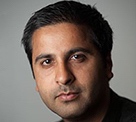How Fake News Can Lead To Online Islamophobia
Imran Awan is Professor of Criminology and Director of the Centre for Extremism and Security at Birmingham City University.
In 2019, I was asked by the Commission into Countering Extremism to provide my insights into the role of extremism online and whether conspiracy theories about Muslims were leading to hate; both online and offline. With my colleagues Dr. Pelham Carter and Hollie Sutch (both at Birmingham City University), we embarked upon our review and started by examining the role of extremism online and used two primary studies to generate empirical evidence that examined the relationship between online and offline extremism through the analysis of social media comments on Twitter and YouTube. Over 100,000 tweets, and over 100,000 YouTube comments were collected for the quantitative analysis, and approximately 600 tweets were collected for the case study based analysis.
We focused on two offline events (the Shamima Begum case and the New Zealand Christchurch terrorist attacks). The reason for choosing these social media platforms was mainly because of the nature of anonymity and users.
The infrastructure and design of social media networks provides individuals with echo-chamber environments. These echo-chamber environments can form because of how the internet has created an environment which prevents opinionated discussions, but rather encourages individuals to engage with like-minded individuals whose beliefs and views are aligned.

We’re building a community and want you to be part of it.
In this way, groups can be formed and we can see sections of the online community become cyber-mobs. Research has documented how these echo-chamber environments can manifest differently on different social media sites. So what did we find?
Whilst there were a mix of positive and negative comments, our analysis revealed largely negative themes, including False Flags and Take-Overs as well as Patriotic Resistance. These themes were distinct but some had clear links and relationships between them. For example, a frequently expressed view by many of the commenters was that of being supressed and silenced by Muslims. Even when reacting to attacks against Muslims, commenters would often refer to this as either being a justified reaction to their perceived loss of rights and marginalization in the face of Islam. One commenter posted:
“I’m quite surprised this hasn’t happened long before this. When you consider the outright atrocities done by Muslim immigrants in the US and Europe, and the authorities trying to minimize rape, murder, child molestation etc, and concentrate on prosecuting any speech negative against Islam rather than the actual criminal acts, it was bound to trigger some unstable person to act in what they see as retaliation.”
Related to this there is some reference to Islam as a death cult that only has a purpose to cause harm, it is regarded as an ‘illness’ like a plague that is spreading uncontrollably. One commenter posted:
“Maybe its [sic] got something to do with the obvious and demonstrable harm islam [sic] continues to cause. a [sic] Cancer survivor doesn’t suddenly sing the praises of cancer because it has escaped its grasp.. and that’s [sic] a perfect analogy for ex muslims [sic]”
We also found that the impact of attacks of Muslims would be undermined by the suggestion that such attacks were exaggerated, less common than attacks on those of other faiths, or that the attacks were ‘false flags’ and part of a wider Islamic or leftist conspiracy theory:
Looking to make a difference? Consider signing one of these sponsored petitions:“Anyone notice the propoganda? [sic] […] Many of the so called ‘hate crimes’ have been false flag attacks to attempt to stir up sympathy. And the media loves to play up the “”white supremacist [sic] bullshit at every opportunity.”
Conspiracy was not often used and preferred terminology centered around the media, fake news, media agendas. Arguably this is, inpart, due to the negative connotations associated with modern conspiracy theories as well as the increasingly populist use of fake news or ‘mainstream media’ as an outgroup to aim accusations towards. In response to an attack like Christchurch rather than being sympathetic, many messages were focused of reminding others of what has happened to their religion and attacks that have affected them. One user posted on Twitter:
“A few dead muslims [sic] compared to millions of slaughtered innocents at the hands of islamic [sic] barbarians. #islamisevil #NewZealandTerroristAttack”
“Let us not forget the thousands upon thousands of victims killed by the real ‘terrorists’, propagating the Islamic ideology. #AntiIslamic #IslamIsEvil #EndIslam #Muslims”
This attempt to reframe and lessen the impact of attacks against Muslims may represent an attempt – much like the use of references to conspiracies and media bias – to gain control of the narrative around deeply emotional events. This could be used to convince or refute those without Islamophobic viewpoints in such an online discussion. There may be less of a need to do this during general online discussions as many videos (such as those in our sample) are already negatively framed and may be found by those already using Islamophobic search terms/keywords.
Conclusion
Increased anonymity is associated with increased extremist and Islamophobic language. Such findings could have a potential impact on how user anonymity is dealt with on social media to mitigate extremism. An examination of YouTube comments has also revealed differences in conspiracy-based language used between YouTube videos that are responding to offline events and those that are general online discussion. This potentially reveals how individuals construct and approach discussions about offline-inspired content differently from discussions that exist exclusively in the online space. Our findings show that the former is an attempt to actively reduce the impact of events – like the Christchurch mosque terrorist attacks – and regain control of the narrative from an anti-Islamic stance.
This article is brought to you by the Centre for Analysis of the Radical Right (CARR). Through their research, CARR intends to lead discussions on the development of radical right extremism around the world.






